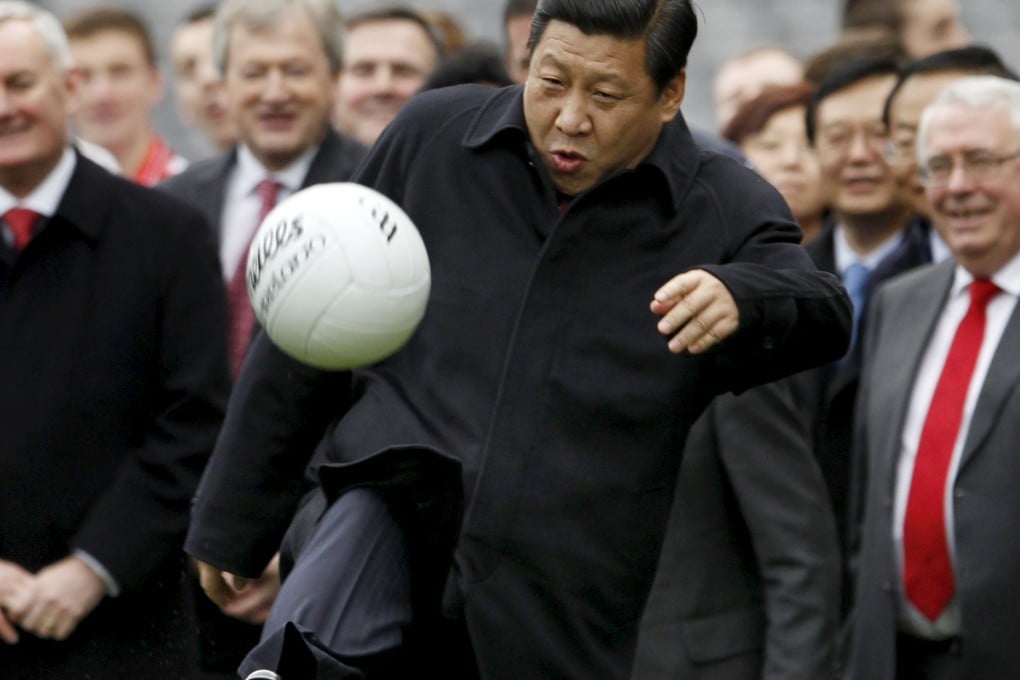China’s soccer-mad President Xi Jinping’s passion for ‘the beautiful game’ sparked while a child

President Xi Jinping, who ends his state visit to Britain on Friday with a visit to English Premier League club Manchester City, is known to be a passionate soccer fan.
Xi’s long-term dream is for China’s national team to win the World Cup.
His love of “the beautiful game” may have developed while at middle school as a result of his late father, communist revolutionary Xi Zhongxun, who is also reported to have enjoyed watching matches.
Xi Jinping, who was born in 1953, played football while at school in the 1950s and 60s and played alongside with many second-generation communist revolutionaries, including the grandson of Marshal Zhu De , who was vice-chairman of China.
The president’s fondness for soccer was also influenced by China’s previous political leaders, many of whom, including Deng Xiaoping, were football fanatics.
One of Deng’s speeches, in which he said, “China’s football education should start with children”, has been mentioned by Xi in his own speeches.
In the 1980s, Xi played less soccer because of his increasing workload.